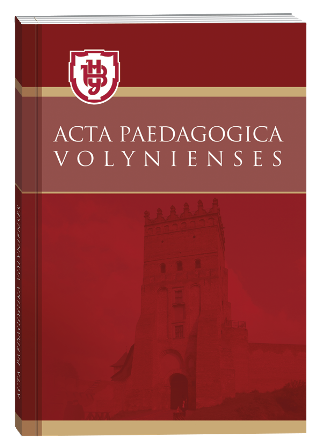METHODOLOGICAL RECOMMENDATIONS FOR THE IMPLEMENTATION OF COACHING TECHNOLOGY IN EDUCATION
DOI:
https://doi.org/10.32782/apv/2021.6.17Keywords:
coaching method, education, teacher transformation, educational processAbstract
The problems of the pedagogical sphere that arise in the conditions of training future specialists, in the context of teacher–student, teacher–group relations are actualized. The purpose of the article is to develop guidelines for the implementation of coaching in education. The essence of the application of teacher roles in the educational process is analyzed: coach, mentor, mentor, facilitator, tutor. Peculiarities of application of the method of coaching in lessons in comparison with usual methods of training, for example, lectures are defined. The necessity of introducing the method of coaching as a tool for student development and self-development of teachers is substantiated. Coaching involves student involvement in dialogue, stimulates activity, creativity, creativity, self-expression. The opposite side of the approach is a lecture (passive perception of information). The necessity of introducing the method of coaching as a tool for student development and teacher self-development is substantiated. Features of application of coaching in education are presented. The advantages of using this method, which has proven itself in the field of business consulting, and has now been developed in pedagogical practice, are presented. Various ways of implementing coaching in lessons are generalized, including coaching methods such as the introduction of individual exercises, both developed by the author and already available in the literature SMART, SMAC, GROW. The processes of transformation of a student and a teacher in the process of learning by the method of coaching in comparison with the traditional method are considered. The modern approaches presented in the scientific literature on the implementation of coaching in pedagogical activities are analyzed. The author's approach to the introduction of coaching in education is proposed, which is based on the successive passage of 4 stages in the question-answer format. The novelty of the approach lies in the complexity and formalization of issues that are suitable for the lesson in almost any specialization. The application of methodological recommendations for the implementation of coaching technologies in education will ensure the quality and effectiveness of the learning process, the intensification of scientific knowledge and research of students, their personal intellectual development and gaining experience in practical research.
References
Романова С.М. Коучінг як нова технологія в професійній освіті. Вісник Національного авіаційного університету. Серія: Педагогіка, Психологія. 2010. 1. С. 3–83.
Рудницьких О. В. Коучінг як інтерактивна технологія в освіті. Вісник Дніпропетровського університету імені Альфреда Нобеля. Серія: Педагогіка і психологія. 2014. 2 С. 173–176.
Поберезська Г.Г. Коучінг як педагогічна технологія студенто-центричного навчання у ВНЗ. Технологія і техніка друкарства. 2017. 4. С. 99–107.
Шорец М. Чем коучинг отличается от других способов работы. URL: https://www.t-profy.ru/publication/chem-otlichaetsya-kouching.html
Горук Н.В. Коучінг як ефективна технологія формування самоосвітньої компетентності студентів. Проблеми підготовки сучасного вчителя. 2015. 11 (1). С. 99–104.
Позднякова А. Мастер-класс «Киберпедагог: Научитесь задавать правильне вопросы». URL: https://www.youtube.com/watch?v=Z_p8MSwzbUo
Хмельницька О.С. Коучінг як сучасна технологія підвищення ефективності навчального процесу. Молодий вчений. 2017. № 6(46). С. 315–320







